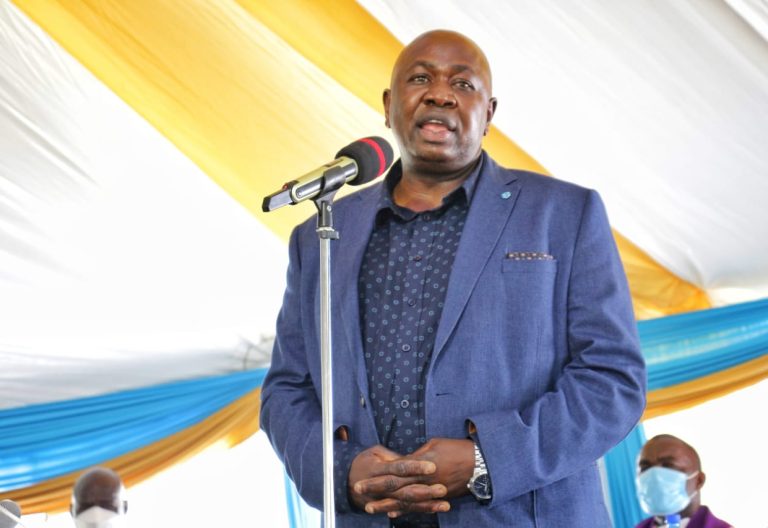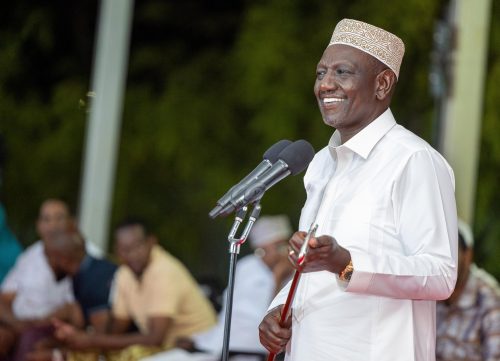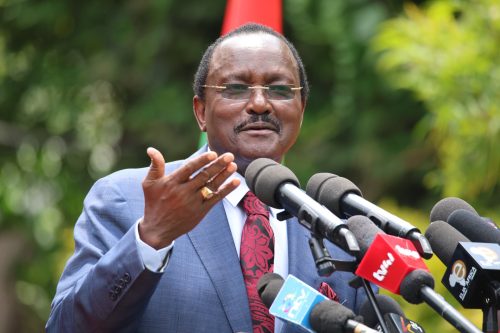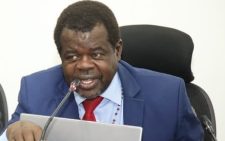‘Scrapping vetting for Somali residents will help curb corruption’ – Former police spokesperson Charles Owino

Former police spokesperson Charles Owino has backed President William Ruto’s recent decision to eliminate additional vetting requirements for Somali residents applying for national identification cards in North Eastern Kenya, saying the move will help reduce corruption.
Speaking on a local media station on February 10, 2025, Owino explained that the extra vetting process, which required residents to appear before security committees, was not only discriminatory but also created opportunities for corrupt practices.
“The vetting which the Somalis were subjected to, to be honest, promoted corruption. We just created an opportunity for people to eat,” Owino said.
He pointed out that the standard vetting process for obtaining ID cards already includes sufficient verification steps for all Kenyans.
“Generally, we are all vetted when we take ID cards. For example, when my children go to take ID cards, they will be asked for a certificate for primary education, a KCSE certificate, and both parents’ IDs. You see, that’s a form of vetting,” he explained.
Owino highlighted the impracticality of the additional vetting requirements, citing cases where Somali residents born and raised in urban areas were forced to travel to remote locations for verification.
“You find an individual who went to primary school, high school, and university around Nairobi, yet his children are sent to Mandera to be vetted. They were born here, and their documents read here,” he said.
The former police spokesperson argued that the extra vetting process was ineffective in achieving its intended purpose.
“Even with this extra vetting people are still finding themselves here,” he noted.
“Some of these things we’re being cheeky, we can do without,” he added.
Presidential directive
On Tuesday, February 4, 2025, President Ruto announced the end of the three-decade-old mandatory vetting process for citizens in the North Eastern region during his development tour of the area.
Speaking in Mandera County, Ruto assured residents that his government would facilitate an easier process for obtaining the crucial document, bringing an end to what he termed as a discriminatory practice that has subjected many Kenyans to unfair treatment.

“The time of Northern Kenya being isolated is over. This region is a crucial part of Kenya and deserves to be treated as such. Kesho niko na ceremony kubwa ya kuondoa, once and for all, ile maneno ya vetting ambayo ilikuwa inawagandamiza watu wa Northern Kenya. Wamefanywa kuwa kama si Wakenya wakati wa kutafuta kitambulisho au passport,” Ruto declared.
Beyond scrapping the vetting process, the head of state emphasized his commitment to fostering national unity and ensuring equality for all Kenyans.
“It’s my responsibility to ensure Kenya is united and people are treated equally. I am committed to ensuring Kenyans are equal and treated with dignity. With the rest of Kenyans, I will proudly undertake this,” he affirmed.
Opposition response
On February 9, 2025, Wiper Party leader Kalonzo Musyoka accused President William Ruto of orchestrating a strategic ploy to manipulate the 2027 general elections through the abolishment of the mandatory vetting process for national identification cards in certain parts of the country.

Speaking in Kilifi during his coastal tour, Kalonzo dismissed Ruto’s move as a desperate attempt to secure new political alliances against the opposition, which is focused on unseating the Kenya Kwanza regime.
“This man is panicking. He thinks he can register voters here and there by providing people with IDs. I assure you that those who benefit from this will be the first to turn against him. Everyone is struggling, just like the others,” Kalonzo told the crowd, suggesting that those benefitting from the move would ultimately oppose the president.










